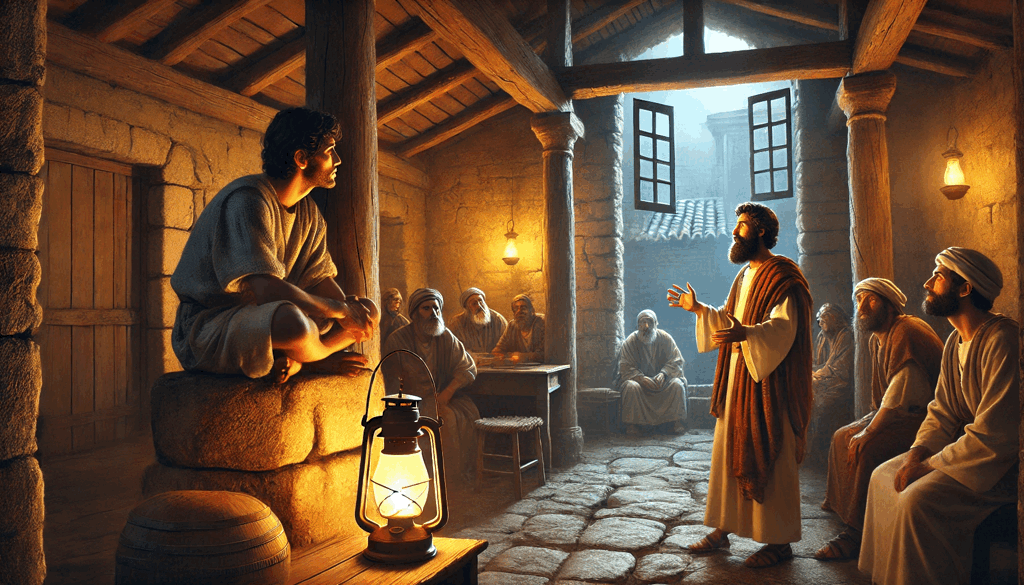n Acts 20, we find Paul continuing his missionary work despite opposition and the constant threat of danger. After the uproar in Ephesus, Paul travels through Macedonia and Greece, where he strengthens the early Christian communities. Despite the hardships he faced, Paul shows immense leadership, never shrinking from his duty to preach and encourage others in their faith.
One of the most striking moments in this chapter is Paul’s dedication to the growth of the church. His heart is pastoral, focused not just on conversions but on nurturing believers. In Troas, Paul extends his sermon late into the night, emphasizing the importance of fellowship and teaching. A young man, Eutychus, falls asleep during the sermon and tumbles from a window, apparently dead. Yet Paul, through the power of faith, revives him, bringing comfort and reassurance to those present.
As Paul prepares to journey to Jerusalem, despite knowing he will face imprisonment and suffering, he remains undeterred. His message to the elders of Ephesus is particularly moving. He reminds them of his dedication and warns them of future challenges, encouraging them to be strong and alert, to guard the faith from internal and external threats. Paul’s words here reflect his commitment to truth and his desire for the church to remain steadfast.
Ultimately, Acts 20 showcases Paul’s deep conviction, his leadership in nurturing the young church, and his willingness to face personal sacrifice for the sake of the gospel. It reminds us that faith requires not just belief but the courage to act, teach, and endure.

